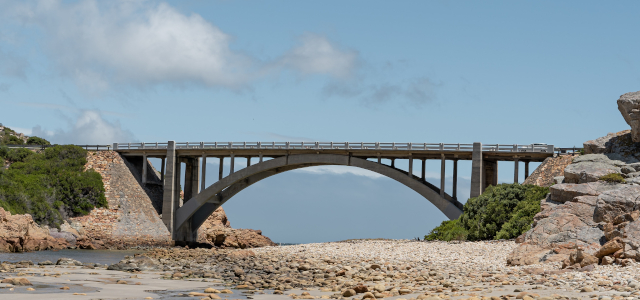Over 100 representatives of African government departments, development and multilateral organisations, civil society, technical experts, river basin organisations, and other stakeholders working in Africa’s water sector attended the consultation.
“The AIP Scorecard will support countries to track progress on the mobilisation of investments in the water sector and raise awareness among Heads of State and government decision makers on the need to address the water investment gap in Africa by identifying bottlenecks,” said Dr. Towela Nyirenda-Jere, Head of the Economic Integration Division at AUDA-NEPAD, who chaired the meeting.
AIP Scorecard to address Africa’s wide – and growing – water investment gap
Delivery of water investments in Africa is lagging behind the continent’s economic and social needs. The AfDB estimates that US$ 64 billion is required annually to meet the 2025 Africa Water Vision of water security for all, however the actual figure invested stands between US$ 10 - 19 billion per year.
The AIP Water Investment Scorecard will support the implementation of the Continental Africa Water Investment Programme (AIP), which was adopted by African Union Heads of State in February 2021. The AIP intends to leverage US$ 30 billion in investments in climate-resilient water security by 2030.
AMCOW urges Member States to support AIP Scorecard
“I would like to urge member states, especially Government Ministries responsible for water and sanitation in Africa and all other stakeholders, to support the development of the AIP Scorecard as well as its adoption and use,” said Mr. Thomas Banda, Acting Executive Secretary of AMCOW.
“The AIP Scorecard is embedded into the Pan-African Water and Sanitation Sector Monitoring and Reporting System (WASSMO), which is a continent-wide harmonized monitoring and reporting system on the state of water development and sanitation. This is truly a system developed and owned by Africa.
In his keynote address Mr. Dominick de Waal, Senior Economist at the World Bank Group noted “We have found that countries with government-led programmatic approaches characterised by decentralised roll-out of infrastructure and credit worthy utilities were most effective in accelerating investment in water security,”
Mr. de Waal also urged countries to consider how the competing uses of water in planned infrastructure projects would reflect on the water supply, which is increasingly under pressure in Africa.
AIP Water Investment Scorecard framework, indicators and data sources discussed
During the second consultative event, stakeholders received updates on the objectives and rationale of the AIP Water Investment Scorecard, which is to track water progress in mobilising investments and enhance mutual accountability for action. Stakeholders also took part in discussions on the overall framework of the AIP Scorecard, as well as its potential thematic areas, indicators, and data sources.
“The AIP Scorecard framework is based on the premise that three conditions are necessary to accelerate investments in Africa’s water sector,” said Mr. Andrew Takawira, Senior Technical Advisor at Global Water Partnership Southern Africa and Africa Coordination Unit (GWPSA-ACU).
“The three conditions are (1) an enabling environment with strong, forward looking, and inclusive governance systems; (2) water investments and financing structures, incentives, and cost recovery mechanisms; and (3) mechanisms to track, monitor, and evaluate the performance and sustainability of investments.”
Proposed data indicators and data sources are grouped among these three conditions. Further information on the AIP Water Investment Scorecard is in this background document, downloadable in English and French.
Next steps for the AIP Water Investment Scorecard
Inputs from stakeholders will be collected and the final draft of the AIP Scorecard will be submitted to the AMCOW Executive Committee in October 2021 and presented to AUDA-NEPAD for reporting to the Programme for Infrastructure Development in Africa (PIDA) Steering Committee in November 2021.
The AIP Scorecard will be presented to the African Union Specialized Technical Committee on Agriculture, Rural Development, Water, and Environment in December with a final Pan-African stakeholder meeting being planned for mid-December 2021. The AIP Scorecard will then be presented to the African Union Heads of States in February 2022.
AIP Scorecard Coordination Structure
Development of the AIP Water Investments Scorecard kicked off in April 2021, during a high-level event co-hosted by H.E. Dr. Ibrahim Mayaki the Chief Executive Officer of AUDA-NEPAD, and H.E. President Jakaya Kikwete, former President of the United Republic of Tanzania and current Chair of GWPSA-ACU.
The coordination structure for the development of the AIP Water Investment Scorecard consists of the three main groups namely: strategic leadership provided by the Steering Committee and led by H.E. Dr. Ibrahim Mayaki, of the African Union Development Agency-NEPAD; H.E. President Jakaya Kikwete, Global Water Partnership Southern Africa and Africa Coordination Chair; Thomas Banda, Acting Executive Secretary at the African Ministers’ Council on Water; Osward Chanda, Acting Director of Water at the Development Bank of Southern Africa; and H.E. Chileshe Kapwepwe, Secretary General of the Common Market for Eastern and Southern Africa.
Operational leadership is provided by the Core Group – African Union Development Agency - NEPAD, African Ministers' Council on Water, Development Bank of Southern Africa, African Development Bank, Organisation for Economic Co-operation and Development, United Nations International Children's Emergency Fund, World Bank, Global Water Partnership Southern Africa - Africa Coordination Unit
Technical support is provided by the Technical Working Group – African Ministers' Council on Water, African Union Development Agency - NEPAD, United Nations International Children's Emergency Fund, World Health Organisation, United Nations Development Programme, United Nations Industrial Development Organization, Food and Agriculture Organization, United Nations Environment Programme, International Union for Conservation of Nature, International Water Management Institute, Stockholm International Water Institute, River Basin Organisations, C40 Cities Climate Leadership Group, AGWA, Sanitation and Water for All, Global Center on Adaptation, Global Water Partnership Southern Africa - Africa Coordination Unit.
Photo credit: Brent Ninaber on Unsplash
